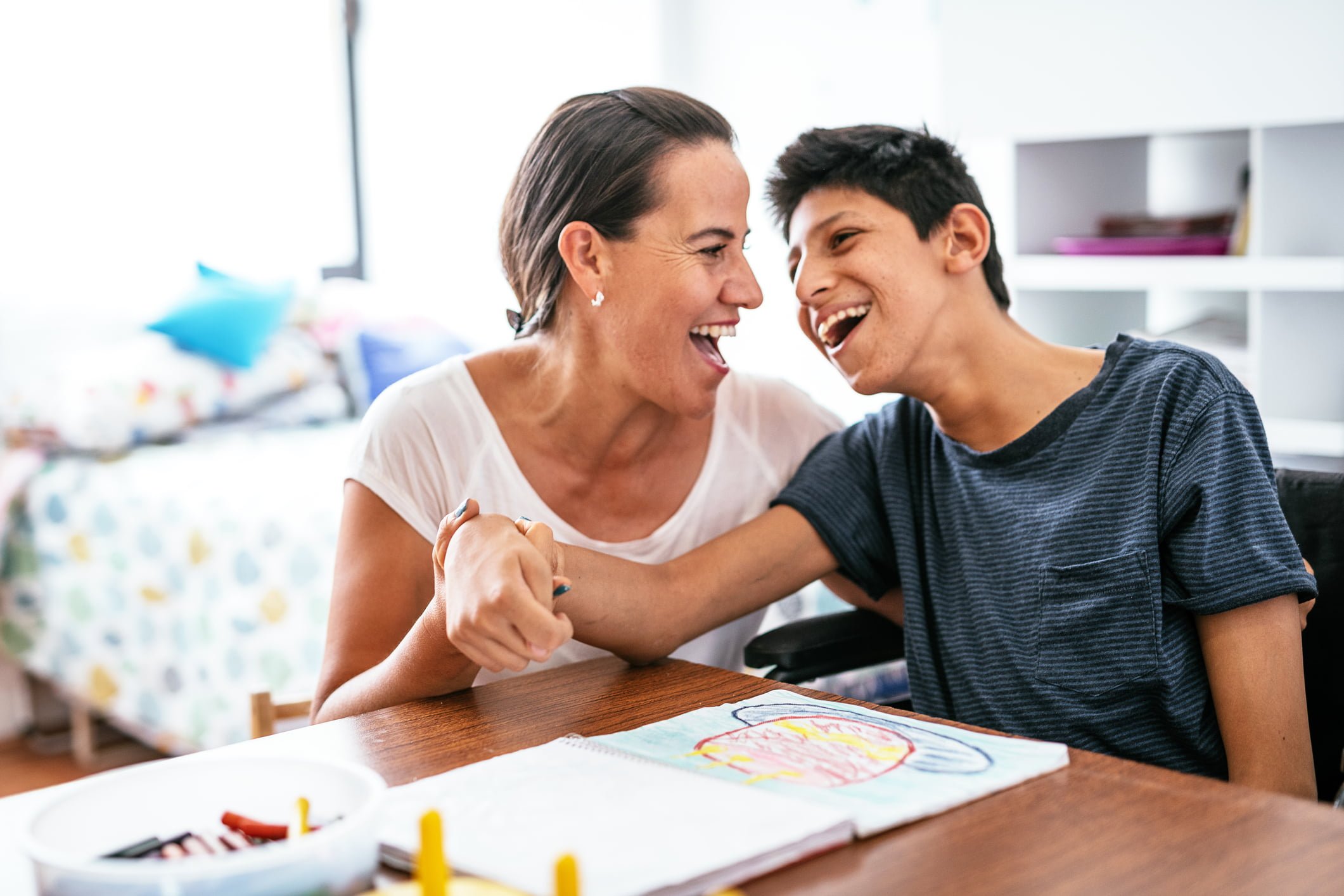Why is this research important?
This research explored understandings and experiences of romantic relationships in adolescents with intellectual and developmental disabilities (IDD). Such youth are at high risk for sexual exploitation, making understanding of these individual’s knowledge, understanding, and experience of relationships and what is appropriate within them especially important.
Adolescents and their parents were surveyed relative to a number of factors, including knowledge of romantic relationships, sexual behaviours, and initiating relationships. 31 adolescents with IDD aged 16-19 were surveyed, 12 of whom were also diagnosed with autism.
Through gaining a better understanding of the existing knowledge held by adolescents with intellectual and developmental disabilities, better educational programs may be created to help support youth as in developing safe and healthy relationships.
Research Findings
1 UNDERSTANDINGS OF DATING AND ROMANCE
—
The research found a lot of variation in the understanding of dating and romance held by adolescents with IDD. Unlike typically developing youth, who see romantic relationships as based on passion, the surveyed youth reported seeing romantic relationships as based on companionship and commitment.
Similar to typically developing peers, the adolescents surveyed reported participating in dating members of the opposite sex, though such behaviour was found to occur at a later age. The surveyed youth, aged 16-19, presented with behaviours similar to those seen in typically developing adolescents aged 9-14 years.
Formal sex education experiences were not found to increase adolescents’ understandings of romantic awareness. Instead, learning from peers and the media were seen as key forms of learning about relationships for youth with IDD.
2 THE INFLUENCE OF PARENTS
—
Adolescents with IDD tend to be sheltered by their parents and, partly because of this, have fewer social opportunities. Despite this, the level of independence among youth was not found to be associated with level of romantic awareness. Surveyed adolescents noted a significant level of disagreement with their parents when it came to dating which may be especially important when it comes to things such as expectations around dating.
It was also found that parents are the means by which most adolescents with IDD learn about romantic relationships. When parents discussed romantic relationships with their child with IDD, this did not necessarily lead to a change in dating behaviours. Rather, youth were seen to hold serious ideas about romantic relationships based on ideas of companionship and commitment.
3 FOR THOSE WITH AUTISM
—
The research found that youth with IDD demonstrated both better social competence and understandings of romantic relationships than did their peers with autism. As social competence is crucial in developing healthy relationships, this draws attention to the unique struggle youth with autism may face in pursuing romantic relationships.
Practical Implications
This research emphasises the importance of romantic relationships to youth with IDD and the need to provide appropriate learning opportunities to these individuals. This highlights the need for dialogue and education among youth with IDD as well as their parents, educators, and clinicians.
Adolescents with IDD learn from peers and the media, so ensuring that appropriate resources and models are provided is of key importance. Equally, parents are a significant source of learning about romantic relationships, so ensuring that they are well prepared for such teaching remains significant.
References
Heifetz, M., Lake, J., Weiss, J., Isaacs, B., Connolly, J. (2020). Dating and romantic relationships of adolescents with intellectual and developmental disabilities. Journal of Adolescence, 79(1), 39-48. doi:10.1016/j.adolescence.2019.12.011




